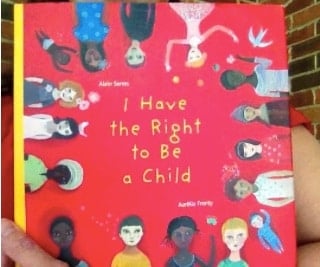
by Cindy Levin | Jun 10, 2014 | 2014, Childhood, Human Rights, Humanitarian, International, Kids, Multicultural, Social Equality, Social Good, United Nations, World Voice

I’ve recently introduced a picture book into my family’s reading time called “I Have the Right to Be a Child” by Alain Serres. With beautiful simplicity, the book provides the author’s interpretation of the United Nations Convention on the Rights of the Child. The Convention includes things like rights to education, gender equality, nutrition, health care, free speech, freedom from child labor, safety, etc. For kids, the book is a conversation starter about human rights. We talked a lot about the question, “What are rights and what are privileges?” For adults, the book is a reminder that these concepts really are not that complicated. It may be complicated in the implementation of granting rights, but when the rights themselves are asserted in the simple language of the children the Convention seeks to protect, it all becomes much more clear.

This is probably the first time my kids saw human rights presented in a way that was meaningful to them. In American museums and text books, the right to vote for women and people of color seems faraway and a “done deal.” They don’t think of those rights as things we continually need to address here and in other countries. My children often help me advocate to give children in developing countries access to school and vaccines, but the language of “rights” isn’t always included in those kinds of discussions.
My youngest really latched on to the page that said,
“I have the right to express myself completely freely, even if it doesn’t always please my dad, and to say exactly how I feel, even if it doesn’t always please my mom.”
We have a lively ongoing debate about how that plays out. If she has the right to express herself completely freely, how might that compete with my perceived right not to be disrespected in my own home or the rights of her other friends and family members?
It might be surprising to Americans to learn that while 194 states in the world have agreed to the Convention, the U.S. has not officially ratified it. In fact, every member of the United Nations except Somalia, the United States, and South Sudan are party to the Convention, having agreed to change or make laws and to develop practices and programs to support it. The U.S. has signed to show support, but hasn’t “ratified” it. Ratification requires being bound by international law and having to report regularly to the UN Committee on the Rights of the Child, which monitors compliance.
Why hasn’t the U.S. ratified? Katie Jay – author of the “Children Deserve Families” blog told me that recognizing that children have a right to a safe and secure permanent family is cutting edge human rights law. The idealistic part of me scoffs at that, saying;
“Really? Cutting edge? To provide security, safety, and nourishment to children is cutting edge?” But the lobbyist part of me knows that it can sometimes be a tricky thing for a country to formally declare something as a “human right.”
Because once you officially do that, then you have to do something about it…or be held accountable by an international authority and possibly give up your moral high ground if you are then seen as a country that doesn’t live up to its own standards. Sadly, from the standpoint of an American citizen who has watched our behavior on international environmental agreements with dismay, I can tell you that Americans generally don’t like the idea of international authority holding us accountable for just about anything.
Has your country ratified the Convention? Take a look at this paraphrased list of rights for children from the book and consider which of them you think are rights or privileges. Are all of them rights? What would be the ramifications for your country to truly grant that right in your country? Internationally? What benefits or problems do you see that could arise if the world embraced the Convention wholeheartedly?
- I have the right to a first name, a last name, a family, and a country that I can call my home.
- I have the right to have enough food to eat and water to drink.
- I have the right to live under a roof, to be warm, but not too hot, not to be poor and to have just enough of what I need, not more.
- I have the right to be cured with the best medicines that were ever invented.
- I have the right to go to school without having to pay.
- I have the same rights whether I am a girl or a boy.
- I have exactly the same right to be respected whether I am black or white, small or big, rich or poor, born here or somewhere else.
- I have the right to be helped by my parents, my friends, and my country if my body doesn’t work as well as other children’s.
- I have the right to be free from any kind of violence, and no one has the right to take advantage of me because I am a child.
- I have the right to go to school and refuse to go to work.
- I have the right to be protected by adults and to be sheltered from disasters
- I have the right never to experience war or weapons.
- I have the right to breathe clean air.
- I have the right to play, to create, to imagine, and also to have friends.
- I have the right to learn about friendship, peace and respect for our planet.
- I have the right to express myself completely freely.
This is an original post written for World Moms Blog by Cindy Levin.
Cynthia Changyit Levin is a mother, advocate, speaker, and author of the upcoming book “From Changing Diapers to Changing the World: Why Moms Make Great Advocates and How to Get Started.” A rare breed of non-partisan activist who works across a variety of issues, she coaches volunteers of all ages to build productive relationships with members of Congress. She advocated side-by-side with her two children from their toddler to teen years and crafted a new approach to advocacy based upon her strengths as a mother. Cynthia’s writing and work have appeared in The New York Times, The Financial Times, the Washington Post, and many other national and regional publications. She received the 2021 Cameron Duncan Media Award from RESULTS Educational Fund for her citizen journalism on poverty issues. When she’s not changing the world, Cynthia is usually curled up reading sci-fi/fantasy novels or comic books in which someone else is saving the world.
More Posts - Website
Follow Me:


by Nancy Sumari | May 28, 2014 | 2014, Africa, Awareness, Home, Humanitarian, Nancy Sumari, Social Equality, World Moms Blog, World Motherhood, World Voice
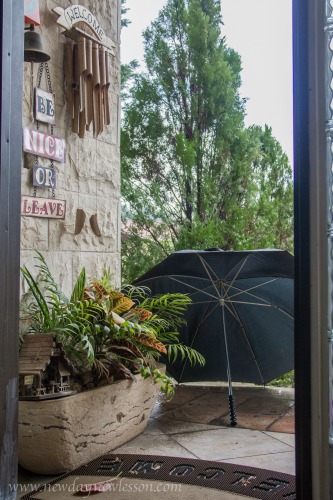
I was recently asked to be a part of the upcoming UNHCR World Refugee Day in my country. I was asked to put literally myself in the shoes of those individuals who have been forced out of their homes and countries, due primarily to conflicts. I was then invited to contribute my thoughts and feelings through a document that would be shared at a gathering on World Refugee Day.
As a mother, I feel that our primal instinct is to protect and nurture, but protection and nurturing that is coupled with nesting. To many of us, a nest may initially bring a picture of “a little bird and a couple of eggs” to mind but in my opinion, a nest brings to mind home. It means having a center, a base, headquarters, in short somewhere to come back to.
That got me thinking. What does this four-letter word, HOME, really mean? To some, not much, because for them it’s something easily taken for granted. To others, it’s a base. A place where you shower, change, nap and get back out there. But, for a lot of people, it’s a residence, it’s family, it’s dignity, it’s freedom. Most importantly, it’s where the heart is. I probably can’t even count the amount of times that I’ve walked in and out of my home, the amount of time I’ve spent time in my home just hiding away from the world in a safe and comforting haven. A lot of those times, I have not really sat and looked around to soak it in and really see what it all means, and certainly not for me, but for my family, until now.
The thought of the loss of this base, this center, a center that helps us be centered, truly breaks my heart. So here I am, thinking about the 5 million people in Tanzania who are currently refugees without ‘A Home’. My heart breaks to think about what that means for the 48% of refugees who are children. I am empathizing with them but also in awe of them all. In awe of their strength. In awe of their resilience.
I wish for a day when every person in this world will have a physical home to house the home each of us carries with us in our hearts.
What does home mean for you?
This is an original post by Nancy Sumari from Tanzania. You can find more of her writing at Mama Zuri.
Photo Credit to Susie Newday.

by World Moms Blog | May 10, 2014 | 2014, Education, Girls, Government, Human Rights, Humanitarian, International, Nigeria, School, Social Equality, Social Good, Social Media, Women's Rights, World Moms Blog
Abducted. Scared. Abused.
Sold.
That’s the likely fate 276 girls are facing, taken from their schools in the remote reaches of north-eastern Nigeria by the terrorist group Boko Haram. It’s been over three weeks since this started. We don’t what’s happening to them and we all fear the worst.
We’re sickened. We’re outraged. We also have no idea what to do. So, we’re doing what Americans tend to do. We’re taking selfies of ourselves with the #BringBackOurGirls hashtag. We’re tweeting. We’re posting facebook rants. In the lack of anything else to do, we’re signing online petitions by the thousands to make the world pay attention.

I’m not saying this these are bad actions to take. No! I signed the petition myself. I tweeted #BringBackOurGirls. I liked and shared Amy Poehler’s Smart Girl posts on facebook to help focus the national conversation on them. I was thrilled to hear that the U.S. is sending support and I believe social media was a part of that. But after I did those things, I was still sickened. Still outraged. I still didn’t know what to do.
And then I thought of this girl.

Malala Yousafzai. A Pakistani girl shot in the head by the Taliban at the age of 15 who still fights daily for girls’ education knows a little something about this issue, don’t you think? She has said, “The extremists are afraid of books and pens, the power of education frightens them. They are afraid of women.”
Then, let those men be afraid of me. I am even more dangerous than a schoolgirl with a pen. I’m an educated mother with a laptop. And I’m not just coming after them. I’m coming after their whole oppressive way of life.
The welfare of the kidnapped girls rests in someone else’s hands in the short term, but I advocate against poverty and injustice with an eye for the long term. While we wait and we pray for these girls, shouldn’t we be using this anger and anguish to secure a future for all girls coming after them?
If all children were in school as a normal matter of course, then schools with girls would cease to be obvious targets. That fundamental paradigm shift would be more effective than sending a SEAL Team in to get the girls (even though that is what I dearly want to happen right now) because educated and empowered girls become mothers who raise enlightened sons.
Here’s another Malala quote:
“Our men think earning money and ordering around others is where power lies. They don’t think power is in the hands of the woman who takes care of everyone all day long, and gives birth to their children.” But the men are wrong. Indeed, the hand that rocks the cradle rules the world.
So, what concrete actions can we – as Americans – take right now to hasten this reality? We can start by demanding that our U.S. Representatives pass the Education for All Act (H.R. 2780), which specifically calls out victims of human trafficking as some of the most vulnerable children to help. We can also call on them to sign U.S. Representative Jan Schakowksy’s letter to the Obama administration to fund $250 million over 2 years to the Global Partnership for Education, which aims to raise $3.5 billion from donor governments at a pledging conference this June. With $3.5 billion invested by donors, the Global Partnership can secure an additional $16 billion from developing country governments. By 2018, that investment can support quality education for 29 million children, largely in fragile and conflict-affected states.
As badly as we need the #BringBackOurGirls social media awareness today for the 276 girls we keep vigil for, these two steps are even more needed in the long run to help millions of other girls at risk now and in the future.
So, after you’ve tweeted and posted your selfie on facebook, do not stop there. Click on these links to contact your U.S. Representative about the Education for All Act and the Global Parntership for Education. Tell them that girls are showing incredible courage just to go to school, and the U.S. should support them. Educating all girls and boys will create a world where kidnapping and selling students is not acceptable in any culture on the planet.
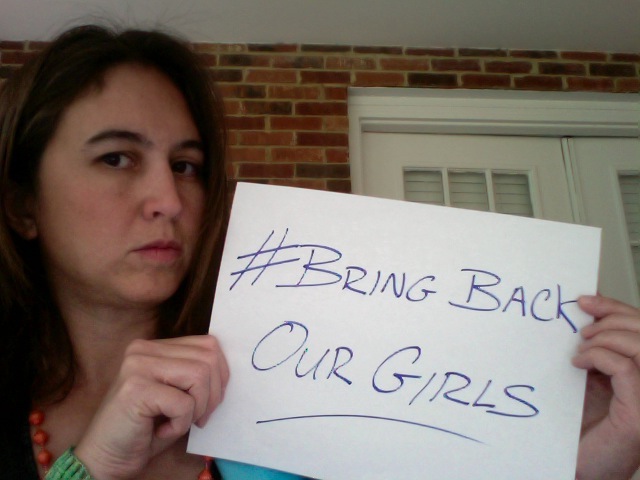
This is an original Post for World Moms Blog by Post by Cindy Changyit Levin who writes the Anti-Poverty Mom blog and is volunteer advocate for RESULTS, Shot@Life and the ONE Campaign. She can also be found on twitter @ccylevin.
Are you ready to take action?
World Moms Blog is an award winning website which writes from over 30 countries on the topics of motherhood, culture, human rights and social good. Over 70 international contributors share their stories from around the globe, bonded by the common thread of motherhood and wanting a better world for their children.
World Moms Blog was listed by Forbes Woman as one of the "Best 100 Websites for Women 2012 & 2013" and also called a "must read" by the NY Times Motherlode in 2013. Our Senior Editor in India, Purnima Ramakrishnan, was awarded the BlogHer International Activist Award in 2013.
More Posts

by Alison Fraser | Apr 15, 2014 | 2014, Africa, Canada, Education, Girls, Human Rights, International, Kids, Life Balance, Life Lesson, Motherhood, Philanthropy, Poverty, Social Equality, Social Good, Womanhood, Working Mother
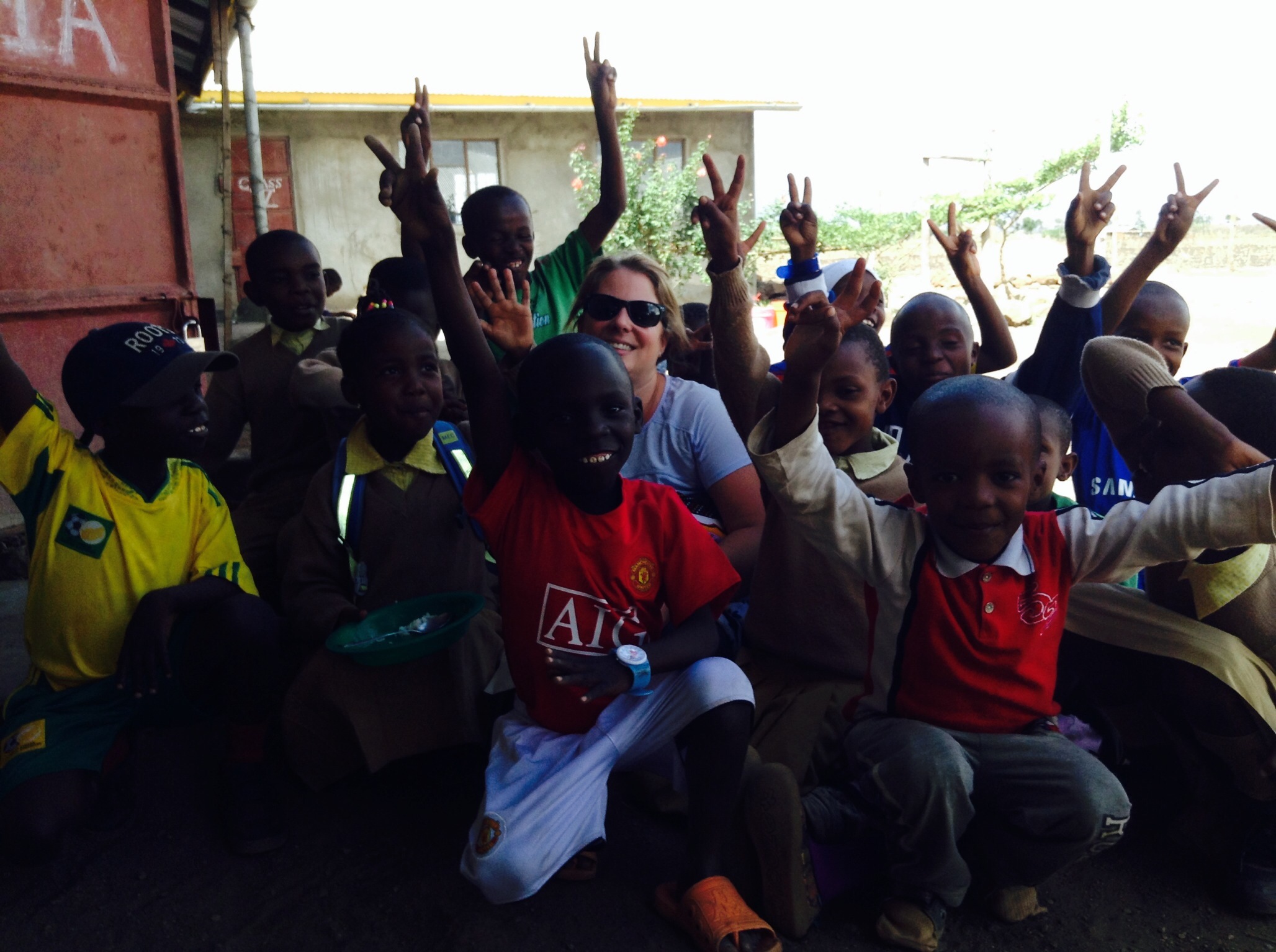
Last November, I visited Tanzania to meet all of the students of the Mom2Mom Africa program, a not for profit organization that I started a short while ago. I remember visiting and spending time with all of the students in the program, and they would refer to me as “Mama”. This is common, and initially I didn’t give it much thought. But, I vividly remember the school director telling me that all of these students are just like my “children”. He said, go back to Canada knowing that you have more than 40 children here in Tanzania! It was so touching, and brought tears to my eyes…yet at the same time, the responsibility of it all was so terrifying. Could I meet their expectations? Could I really be a “good” mama to all of these little ones?
You see, I have three little girls of my own back at home. My time is stretched thin providing for them. Could I really be a good mommy and mama? I struggle daily with how to balance both.
People often talk about mommy guilt. It is a concept I understand all too well, being a working mom. I have made many concessions in my career in order to balance work and family.
I work a reduced work week so that I can spend as much time with my girls as possible. So far, it works for us.
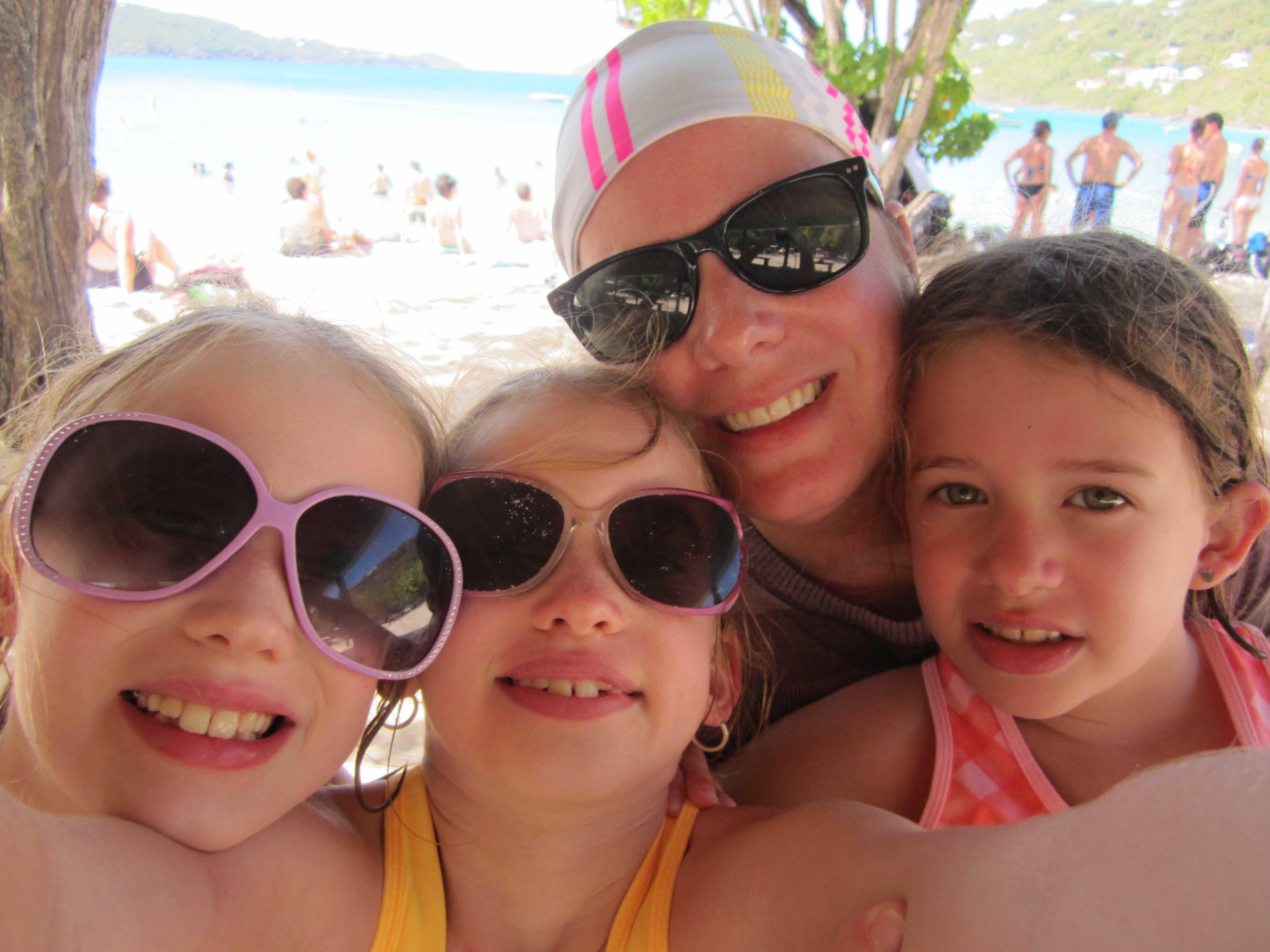
But now, I struggle to balance the pressures that come with my not for profit organization work, especially being a mama to these Tanzanian children who stole my heart last November. I am constantly worrying about them, working to secure funding to send them to school, and keeping tabs on their families, many of whom struggle with illness. I spend countless hours on this; late nights and weekends. And, I love every minute of it. But, it does take time away from my little girls…and that causes guilt…mommy guilt. Should I be spending less time working on Mom2Mom Africa and more time with my children…and then other times, I worry about the exact opposite. It seems like I am forever in guilt mode. When I am in Canada, I worry about the children in Tanzania. Yet, booking my next trip to Tanzania in July caused major guilt. I can’t win.
So, I talked to my daughters about this recently. I tried to explain how being a mama and mommy can be really difficult. Thankfully, all three of my girls were supportive beyond their years. My girls are my world. And my work in Tanzania, and the children there, are always in my heart, and mind. I just have to do the best I can at balancing both worlds and hope that I succeed.
I think mommy guilt is a common thread that all of us moms feel at one time or another. We are likely too hard on ourselves and most often are doing a better job than we actually give ourselves credit for. And in the end, I think I can be both a mommy and mama. I just have to be conscious of keeping a healthy balance between both! And I now know my girls will help me keep it all in check! Knowing I have their support eases the mommy guilt, and lets me instead channel that energy into being a good mommy and mama! Or at least the best one that I can be!
Mom2Mom Africa has just launched an indiegogo campaign to build a new school and implement a food program at one of the schools they send students to in the Mom2Mom Africa program. Click HERE if you would like to be a part of this exciting campaign.
Can you relate to the “Mommy Guilt” dilemma?
This is an original post written for World Moms Blog By Mom2Mom Founder Alison Fraser.
Alison Fraser is the mother of three young girls ranging in age from 5 to 9 years old. She lives with her family in Cambridge, Ontario, Canada. Alison works as an Environmental Toxicologist with a human environment consulting company and is an active member of the Society of Environmental Toxicology and Chemistry (SETAC). She is also the founder and director of the Canadian Not for Profit Organization, Mom2Mom Africa, which serves to fund the school fees of children and young women in rural Tanzania. Recently recognized and awarded a "Women of Waterloo Region" award, Alison is very involved in charitable events within her community including Christmas Toy and School Backpack Drives for the local foodbank.
More Posts - Website
Follow Me:



by Purnima Ramakrishnan | Apr 11, 2014 | 2014, Brazil, Human Rights, Humanitarian, Humanity, Purnima, Social Equality, Social Good, The Alchemist, World Moms Blog, World Voice
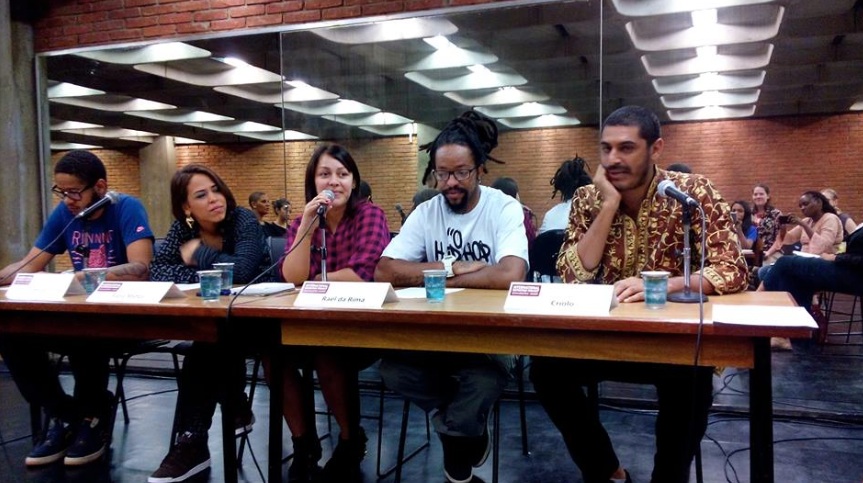
Centro Cultural Sao Paulo
Our visit to Sao Paulo with The International Reporting Project was coming to a close. After a very hectic day of Community heath visits and chatting with doctors, nurses, and community health workers, we just had to do something very cool. And what nicer thing than to rap our way into it?
We met the awesome International acclaimed Brazilian rap group at Centro Cultural Sao Paulo, and it was a great honor to be in their presence.
In the 1990s a musical style known as rap consciencia (socially conscious rap) originated in Brazil. These days it is making huge waves and improving the lives of people by making them socially conscious of their choices, their lifestyles, rights, issues, and gently coaxes them to dream of things which generally are taboo to dream about, for the Afro-Brazilian ethnicity.
Criolo was 11 years old when he started writing lyrics and now he has chart busters in London, New York and Paris. At the tender age of 11 he wrote about social issues. Social inequality is a major problem in Brazil. There is still prejudice across Brazil.
Criolo said, “there are so many ways to live. To wake up, to eat, to get to work and then get some money and then to eat again, is one way. If that is to live, it means people sell themselves for some food and money. That is just a process. Stop it. Live life. Let us talk about ourselves, our passions and aspirations and our joys.”
Rael da Rima was 11 when his music band used to talk about social injustice, racism, and equality to all. He talked a little bit about his personal life, and how rap music changed his life, and the lives of people living around him.
He said, “I give you an analogy for the social inequalities in Sao Paulo. Some people use this mineral water (indicating the drinking water on the table) to wash their BMW cars, and yet some do not have access to clean drinking water. Sao Paulo is a city of extreme contrasts. I sing so that people consciously become aware of their own lives and strive to improve it.”
Rael singing of his passion for rap music:
Emicida says, “When I was young, to get into college was not something youngsters would think about. Just to let the day go by was an accomplishment. Nowadays when I walk through the favela(slum) I grew up in, I am so happy to see the youngsters talking about their dreams of being in college and to get a ‘real’ job. When slavery was abolished, it was both a curse and boon. A curse because people were pushed into poverty and violence with no support system, a lot of confusion, and no real understanding of what was happening in society or the political and economic scenario of the country. My rap is to inspire people to talk about their dreams, how to get out of social inequalities and to be truly free. In everyone there is a human being and I wish for each one to know it. Through rap music, the magic of communication is established, and people are inspired to know themselves as such.”
Emicida singing for World Moms Blog
Flora Matos was 18 when she decided to move to Sao Paulo from Brasilia. She sings so people are free of sexual prejudice. She says her music always speaks of love – love for all kinds of people – love for humanity as a whole and breaking anything which could make people hate each other.
Flora Matos singing of love – love for people, passions, and love for all of humanity
These musicians and others like them are not people who sign on big labels or crave all of the fame and popularity. They just want justice, recognition of the minorities as human beings, and some peace for their community. And they do it through rap music.
They sing about poverty, prejudice, abuses of various types, about the blacks and whites in Brazil, and the classes. Flora said, all her numbers are characterized by experiences, either her own, a friends or someone she knows about. So this idea of communication which Emicida says – that is the magical bond – is established. This communication through music is not just passing of information or ideas or activism – it is an expression to bond humanity, a gentle prod to awake, and be aware. So through the actual performance the listeners carry back this vital element of being part of the movement.
So even though they do not directly change anything, or may not be able to give statistics and figures, they change attitudes, and invest in developing agents of change – which is a very vital thing to forge a developing society, progressing towards success.
I am not a big fan of music, not even Indian music, but that day I promised Criolo I would look him up on Youtube. He was mildly surprised to know that I came for a meeting with rap artists when I was not into music at all. I explained that it was because I learnt they worked for social causes through music, and I was interested in that. He wished me luck and said he would look up World Moms Blog too and we parted.
Just for fun, I also recorded some street musicians the other day in Sao Paulo’s Avenida Paulista, one of the poshest locality in Sao Paulo. I cant help sharing the below one.
This is an original post to World Moms Blog by Purnima Ramakrishnan, our Indian mother writing from Chennai, India. Her contributions to the World Moms Blog can be found here. She also rambles at The Alchemist’s Blog.
Photo credit to the author.
Purnima Ramakrishnan is a fellow of Journalism with the International Reporting Project (IRP), reporting from Sao Paulo, Brazil. Follow on Twitter at #BrazilMDGs





















